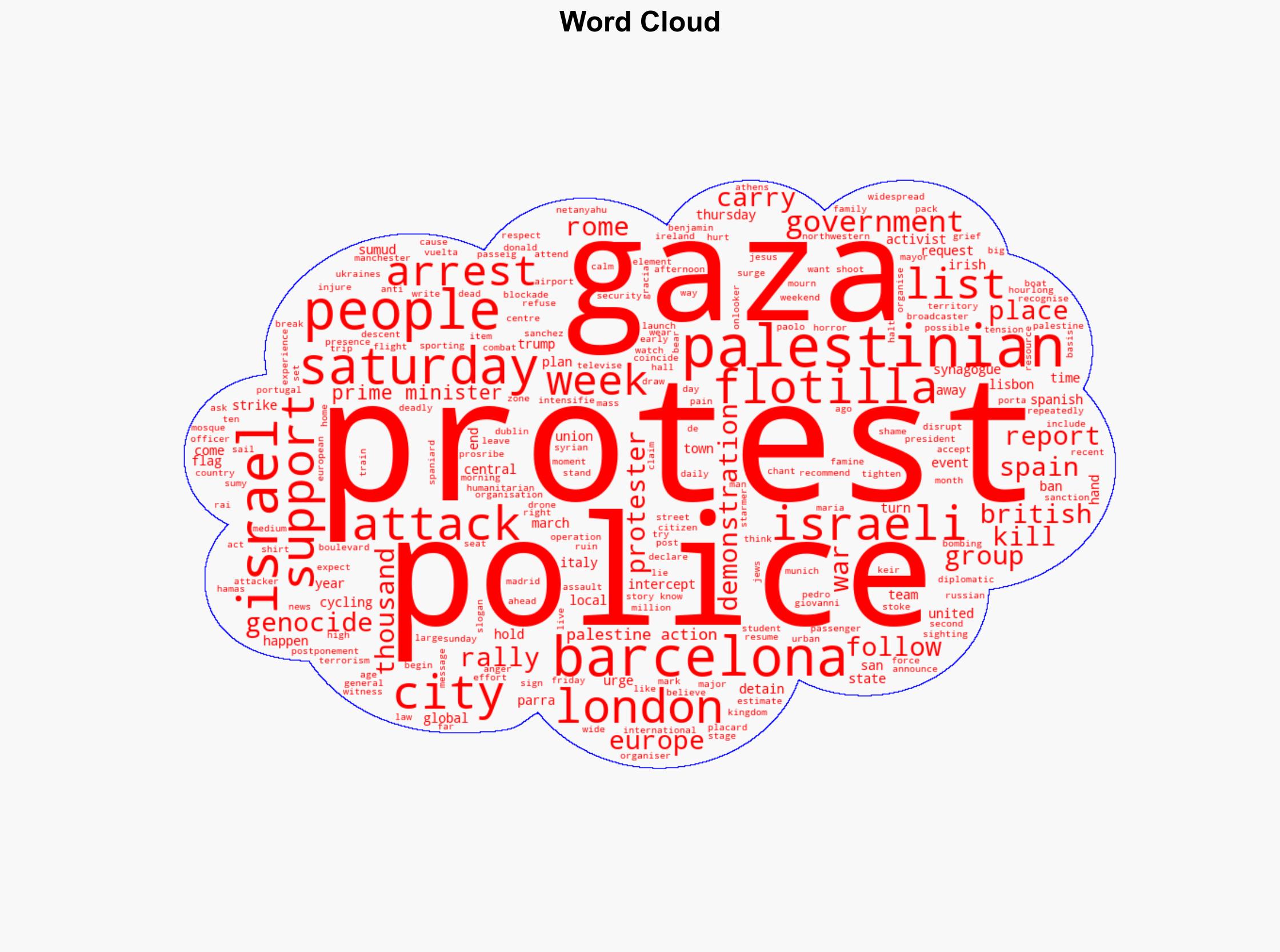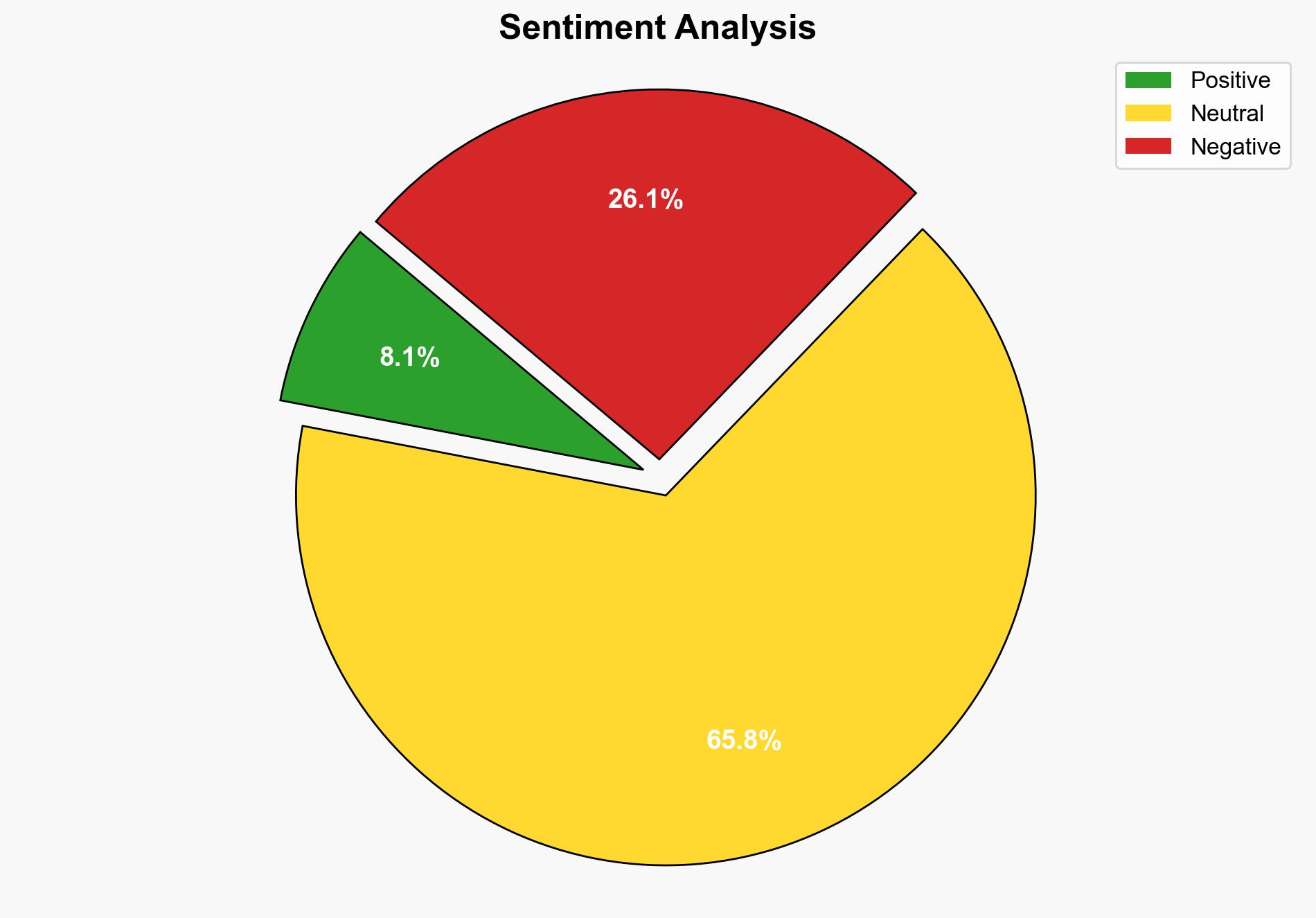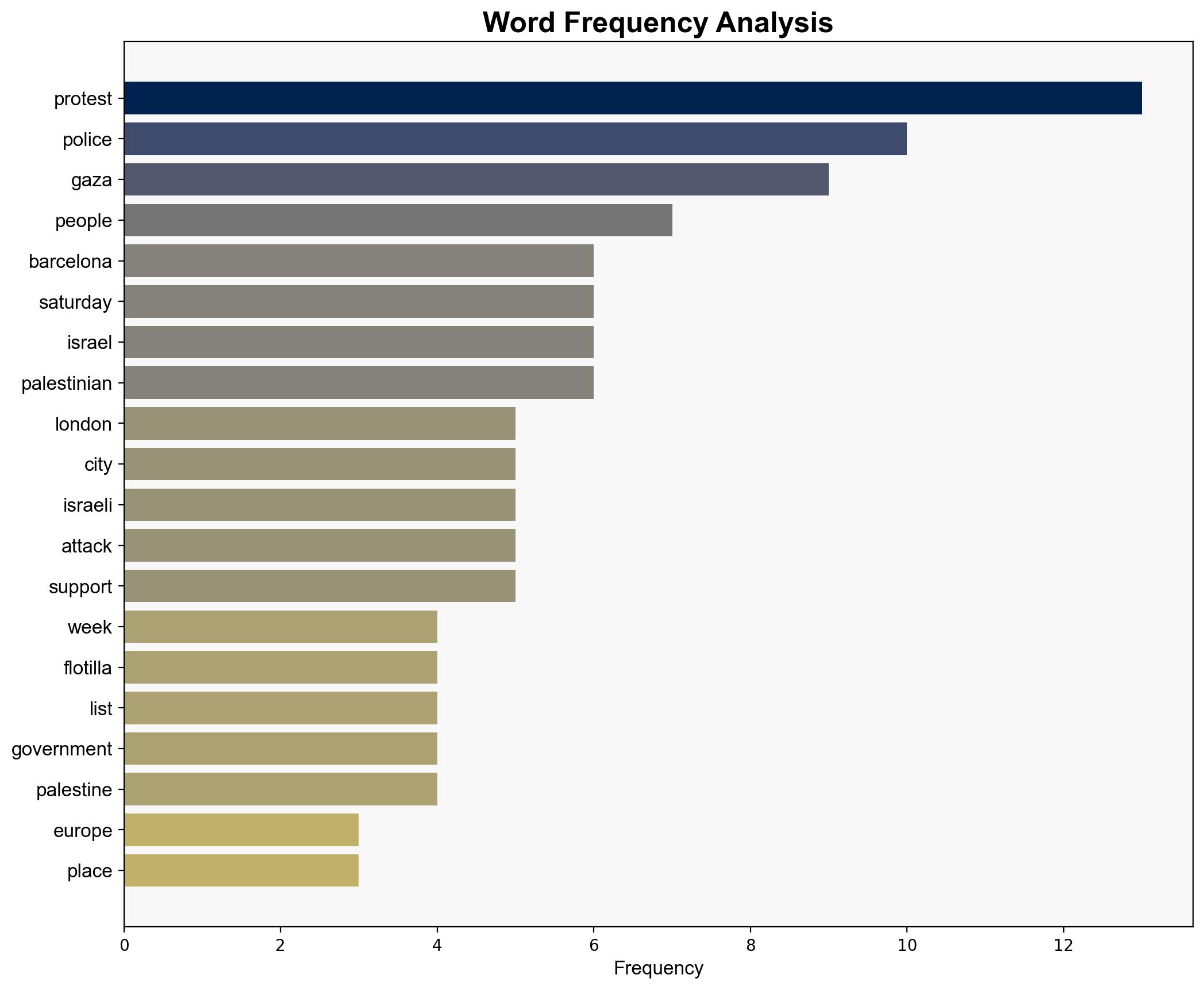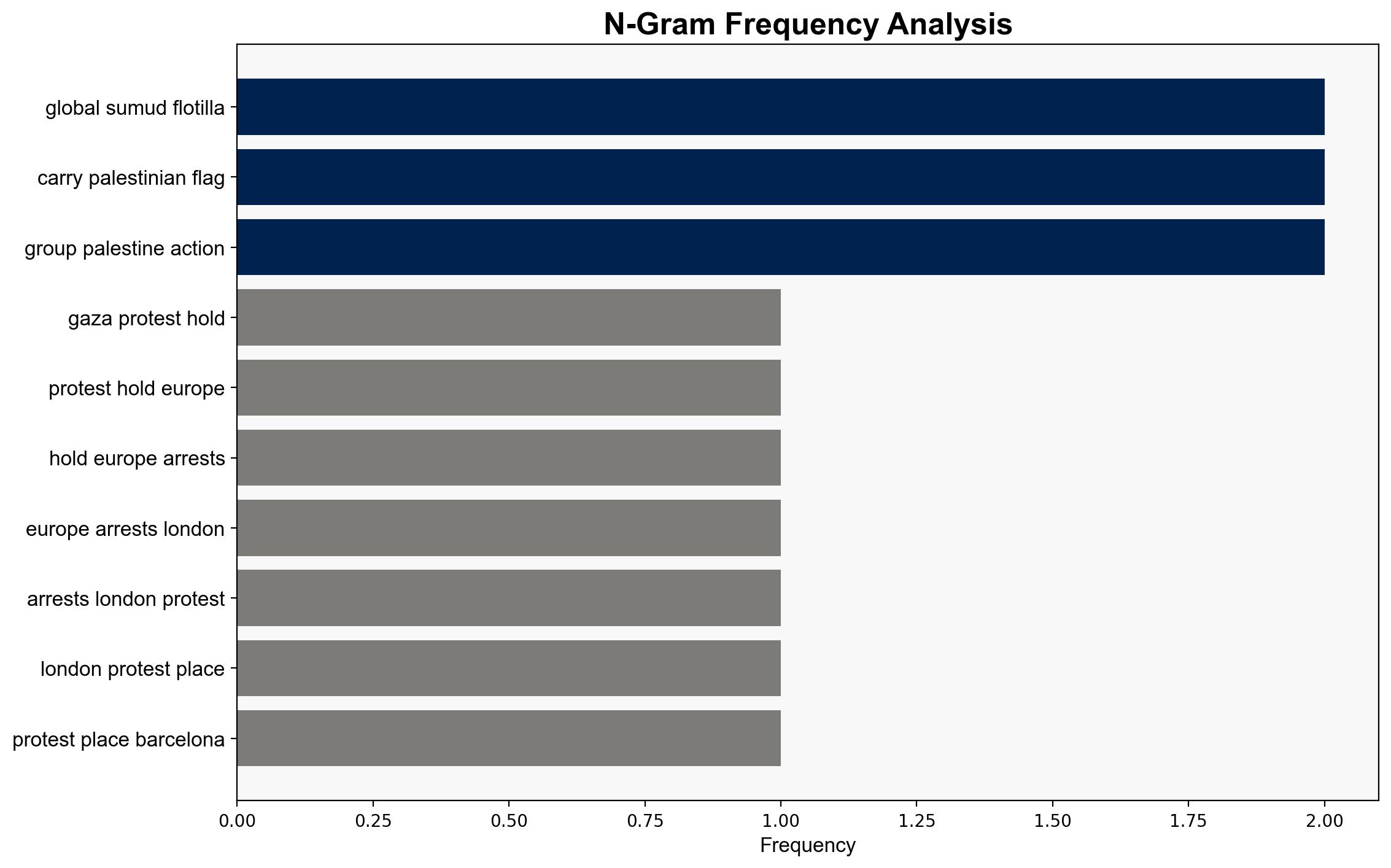Gaza protests under way in Europe as arrests made in London – Al Jazeera English
Published on: 2025-10-04
Intelligence Report: Gaza protests under way in Europe as arrests made in London – Al Jazeera English
1. BLUF (Bottom Line Up Front)
The ongoing protests across Europe, particularly in London, reflect significant public dissent against Israeli actions in Gaza, with potential implications for regional stability and security. The most supported hypothesis suggests that these protests are primarily driven by genuine grassroots movements expressing solidarity with Palestinians. Confidence level: Moderate. Recommended action: Monitor protest developments closely and engage in diplomatic dialogue to address underlying grievances.
2. Competing Hypotheses
1. **Hypothesis A**: The protests are primarily grassroots movements driven by widespread public anger over Israeli actions in Gaza, with support from local unions and student organizations.
2. **Hypothesis B**: The protests are being strategically manipulated by organized groups with political agendas, potentially including proscribed organizations, to destabilize European cities and influence public opinion against Israel.
Using structured analytic techniques like ACH 2.0, Hypothesis A is better supported by the evidence of widespread participation across multiple cities and the involvement of diverse groups such as families and students. Hypothesis B lacks substantial evidence of coordinated manipulation beyond isolated incidents.
3. Key Assumptions and Red Flags
– **Assumptions**: It is assumed that the protests are spontaneous and not significantly influenced by external political actors. This may overlook covert influences or funding from organized groups.
– **Red Flags**: The arrest of individuals linked to proscribed groups in London suggests potential exploitation of protests for broader political aims. The lack of detailed intelligence on the organizational structure of these protests is a blind spot.
4. Implications and Strategic Risks
The protests could lead to increased tensions between communities in Europe, particularly if they are perceived as anti-Semitic or if violence escalates. There is a risk of further polarization and potential retaliatory actions. Economically, prolonged unrest could impact local businesses and tourism, especially in major cities. Geopolitically, these events may strain diplomatic relations between European countries and Israel.
5. Recommendations and Outlook
- Engage in proactive diplomatic efforts to address the root causes of the protests and promote dialogue between conflicting parties.
- Enhance intelligence gathering on protest organizers to better understand potential external influences.
- Scenario-based projections:
- Best Case: Protests remain peaceful, leading to constructive dialogue and policy adjustments.
- Worst Case: Escalation into widespread violence, resulting in significant political and social unrest.
- Most Likely: Continued protests with occasional clashes, maintaining pressure on governments to respond diplomatically.
6. Key Individuals and Entities
– Pedro Sanchez: Spanish Prime Minister, vocal about the situation in Gaza.
– Keir Starmer: British Prime Minister, advocating for calm and respect for all communities.
– Maria Jesus Parra: Protester from Barcelona, representing grassroots sentiment.
7. Thematic Tags
national security threats, regional focus, public dissent, geopolitical tensions





